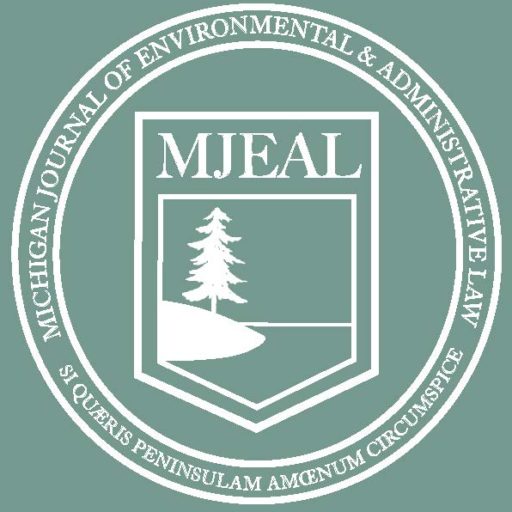
This put up was authored by Matthew Loescher, Esq.
The Chandlers and Barnes had sought an injunction to forestall the City Council of Perdido Seashore from establishing a public boat launch and pier on the finish of State Road on the western shore of Soldier’s Creek. – adjoining to their properties. On this case, the property appealed from a judgment entered by the Baldwin Circuit Court docket after a bench trial in favor of the City Council.
Upon evaluate of the report, the court docket famous that the proposed boat launch can be positioned the place State Road ends on…

This submit was authored by Anna Kim, Touro College Jacob D. Fuchsberg Legislation Middle
The appellant, Donald, and Judith Brinkley, appealed and argued that the Metropolis of Milford Zoning Board of Adjustment (Board) illegally granted the particular use allow to Okoboji Neighborhood College District (OCSD) with out substantial proof. The District Court docket held that the Board’s determination to approve the particular allow with a situation to delay the vegetative screening was authorized and supported by substantial proof. The Court docket of Appeals affirmed.
In Could 2021, the OCSD submitted a particular use allow to assemble a brand new bus…

This put up was authored by Joshua Vayner, Touro College Jacob Legislation Heart
Initially, 99 and 101 Industrial Avenue had been designated as a single, waterfront property between 1989 and 2010. In September 2018, the Zoning Board of Appeals of the City of Provincetown in Barnstable County Massachusetts, granted a variance to the trustees of the 99 Industrial Avenue Realty Belief, permitting them to rebuild a deck that was destroyed which accordingly restricted entry for people with mobility challenges In 2010, the Jack and Lora Papetsas offered the property to the Carew Defendants, who divided it into two separate properties,…

Sokoloff Legal professionals are dedicated to defending your privateness. This Privateness Coverage outlines how we deal with your private data to guard your privateness.
Privateness Laws:Since January 1, 2004, all Canadian organizations engaged in business actions have been required to adjust to the Private Info Safety and Digital Paperwork Act (“PIPEDA”) and the Canadian Requirements Affiliation Mannequin Code for the Safety of Private Info integrated by reference into PIPEDA . These obligations prolong to legal professionals and legislation corporations, together with Sokoloff Legal professionals.
As a providers agency, we have now skilled and moral obligations to maintain confidential the knowledge…

This post was authored by Gabriella Mickel, JD Candidate 2024, Elisabeth Haub School of Law at Pace University
In this case, a competing hotel owner, South Bethlehem Associates, LP, challenged the decision of the Zoning Hearing Board of Bethlehem Township Pennsylvania to grant variances to Central PA Equities 30, LLC for the construction of a new hotel two blocks away. The main issue at hand is whether the competing hotel owner has the legal standing to seek a judicial review of the zoning board’s decision.
The court noted that ordinarily, standing requires a showing of adverse impact, that reflects a…

The Hexavalent Chromium Spill That Never Happened: Without Disasters, Where Does Environmental Litigation Come From?
Kathleen RossOn July 29, 2022, Tribar Manufacturing, an auto supply manufacturer, improperly released 10,000 gallons of toxicant-containing discharge into the sewer system of Wixom, Michigan.[1] The release overwhelmed the Wixom wastewater treatment plant and entered Norton Creek, a tributary of the Huron River, before being discovered.[2] Early reporting suggested that thousands of gallons of the toxic chemical compound hexavalent chromium had made its way into the Huron River, prompting panic and anger in downstream communities.[3]
A number of factors contributed to the furor. Hexavalent…

Opening the Floodgates: Axon Enterprises, Inc. v. FTC and the Weakening of Public Power
Keenen McMurrayIn November of 2022, the Supreme Court heard oral arguments on a pair of consolidated cases including Axon Enterprise, Inc. v. Federal Trade Commission[1] and Securities and Exchange Commissionv. Cochran.[2] These cases concern whether challenges to the adjudication processes of administrative agencies can properly be heard in a federal district court, without first going through the agencies’ respective processes.[3] This administrative agency adjudication process is established by the Administrative Procedure Act (“APA”), which is a federal act that governs the procedures of administrative law.[4]…

The Supreme Court Case that Threatens to Upend US Labor Law
Priyanka PoduguWithin the next few months, the Supreme Court will release its decision for Glacier Northwest v. Int’l Brotherhood of Teamsters, a case that has held the attention of union activists and corporate leaders, alike. The case reached the Supreme Court in the aftermath of a 2017 strike organized by Teamsters on behalf of truck drivers employed by Glacier Northwest, a Seattle-based company that manufactures cement.[1] The union timed the labor strike to begin after Glacier Northwest employees filled the company’s trucks with cement, causing some of the…






